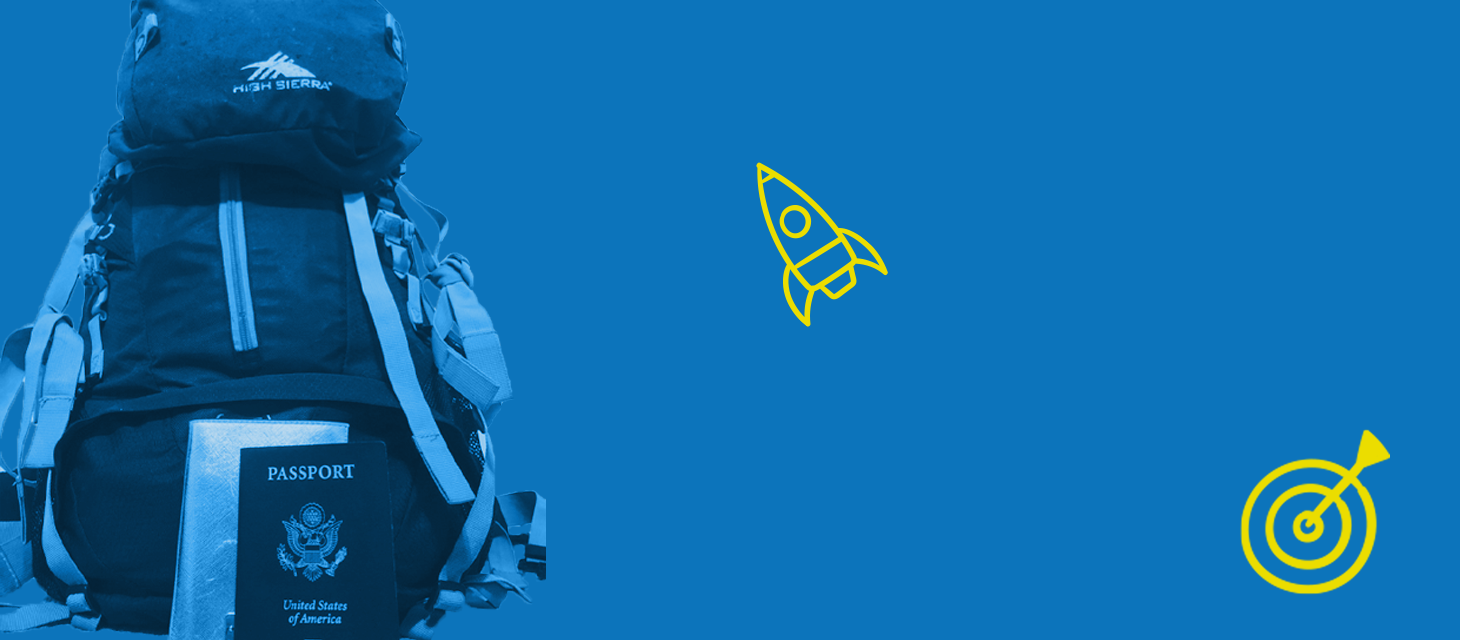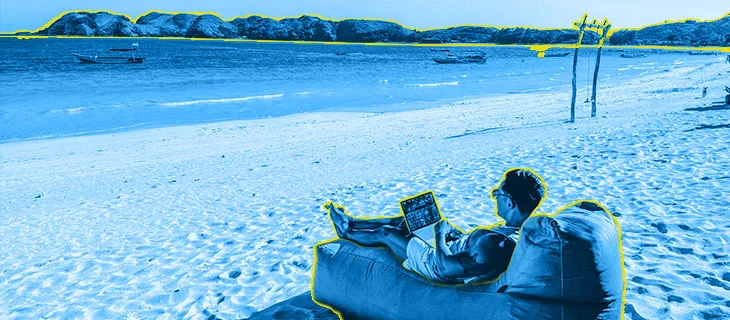The Digital Nomad Invasion and How Not To Be Part Of It

As you step off the plane feeling tired from the long flight and into a new country you’re about to call home for the next month or so, you feel an overwhelming sense of excitement and opportunity. Stepping out of the airport and taking in the very first sight of the country where you’re about to live, you’re confident that being a digital nomad is right for you. You’re about to make an incredible impact on the world, meet some fantastic people, and form unforgettable memories. However, being a digital nomad comes with some great responsibility that not everyone likes to talk about.
It’s never been easier to become a digital nomad. With the advancement of technology and more jobs going remote, there have been more and more people jumping at the opportunity.
Nomads have established a tendency to go to countries with weaker currencies (think Thailand and Indonesia) to live and work. By doing so, they impact tourism, the local culture, and, most importantly, the economy – but not always in a good way.
The Digital Nomad Invasion
A popular trend amongst digital nomads is to live in a country where you can exploit a currency that’s weaker than your own. You’ll be paid in dollars, pounds, or euro, which you can then exchange and live like a king.
These nomads often don’t make an effort to become part of the community. They are in a place for a short time, so they focus on tourism and their own business or projects while neglecting the local culture. Instead, they view the country through the lenses of their own culture and upbringing.
They rarely invest in the community. This is because digital nomads usually stay in short term rentals or Airbnbs, instead of investing and buying property. They also don’t pay local taxes on their income or property taxes.
How to Set Yourself Apart
It doesn’t have to be like that, though! There are many ways you can be a fair, conscious digital nomad who is respectful of the places and cultures you visit.
Shop Locally
Rather than shopping at international retail stores like H&M, which is the same all over the world, buy items from small local businesses. These shops offer much more original and unique clothing, which can become a souvenir of your time there.
Favor street food and small, family-run restaurants rather than big chains when dining out. Also, try to buy groceries at a local farmers’ market rather than international supermarkets.
By shopping locally, you contribute to the local economy rather than large corporations and directly impact the community.
Volunteer
When you’ve finished your work for the day, volunteering can be an amazing way of contributing your time and skills to the community that’s hosting you.
You can search for local organizations and charities that need volunteers. A quick search online or conversation with some local friends can lead you in the right direction.
If you find that you are traveling with more items than you need, you can always donate them. There are most likely thrift stores or donation centers wherever you are. If not, ask a local friend if they know where you can drop off your unwanted items.
Lastly, you could offer conversation or lessons in your native language, especially if it’s a widely spoken one like English. It’s an excellent opportunity to meet local residents and make lasting connections and friendships as well.
Adopt the Culture
Even though you may only be in a place for a short time, take time to learn the customs and traditions of your host country. If you happen to be there during national or religious holidays, take full advantage and join the celebrations.
You might not have enough time to become proficient in the local language, but you can certainly learn a few useful phrases like greetings and pleasantries.
Utilize Coworking Spaces
As a digital nomad, you may need to cut corners where possible and decide to work from a cafe. Let’s be honest, it’s much more economical to pay a couple of dollars for a coffee in exchange for hours of desk space. However, some cafes may not appreciate you setting up a workspace for hours, as tourists and locals may be turned off by this.
Instead, use coworking spaces where available. They are a great place to meet other nomads and locals alike. They’re usually much more comfortable than cafes and often worth the price you pay for a membership.
Be Environmentally Conscious
If you’re working in areas where tap water isn’t safe to drink, be conscious of your plastic consumption. Rather than half-liter bottles, buy large jugs and fill up a reusable water bottle. You may also consider getting a water filtration tool, like a LifeStraw.
Similarly, be conscious of the environment and pollution. Choose public transport over taxis and Ubers if it’s safe to do so.
A Global Community
Whatever you do, remember that being a digital nomad means being part of a respectful, open-minded, global community of individuals. When you make the world your home and declare yourself as a global citizen, you have the responsibility of accepting different cultures and benefiting the communities that host you.
Join Nomads Embassy: The Official Global Digital Nomad Network to find your place in the world.
You may also enjoy

The most complex and time-consuming part of applying for a digital nomad visa is gathering all of the right documents. To help get you started and hopefully save some time,…
by Brittany

Taiwan will be the latest country in Asia to welcome remote workers officially by introducing the Taiwan digital nomad visa. In an effort to attract at least 10% of the…
by Brittany

As a remote worker traveling the world, you’ve likely heard about the more than 40 digital nomad visas available worldwide. They’ve piqued your interest, but what are the signs you…
by Brittany
